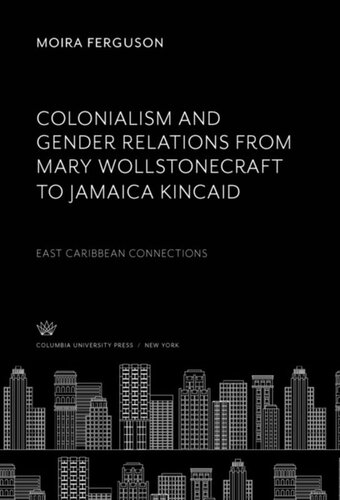

Most ebook files are in PDF format, so you can easily read them using various software such as Foxit Reader or directly on the Google Chrome browser.
Some ebook files are released by publishers in other formats such as .awz, .mobi, .epub, .fb2, etc. You may need to install specific software to read these formats on mobile/PC, such as Calibre.
Please read the tutorial at this link: https://ebookbell.com/faq
We offer FREE conversion to the popular formats you request; however, this may take some time. Therefore, right after payment, please email us, and we will try to provide the service as quickly as possible.
For some exceptional file formats or broken links (if any), please refrain from opening any disputes. Instead, email us first, and we will try to assist within a maximum of 6 hours.
EbookBell Team

4.7
106 reviewsExamines the connections between gender and colonial relations in texts by British writers of the eighteenth and nineteenth centuries and Caribbean writers of the nineteenth and twentieth centuries: Mary Wollstonecraft, Anne Hart Gilbert, Elizabeth Hart Thwaites, Jane Austen, Jean Rhys, and Jamaica Kincaid. It argues that they were bound by their participation in a discourse about East Caribbean and British women and African-Caribbean slaves and in their desire to extend and amplify to fit different situations at the metropolitan center and its periphery in order to see and say things they otherwise would not be able to.